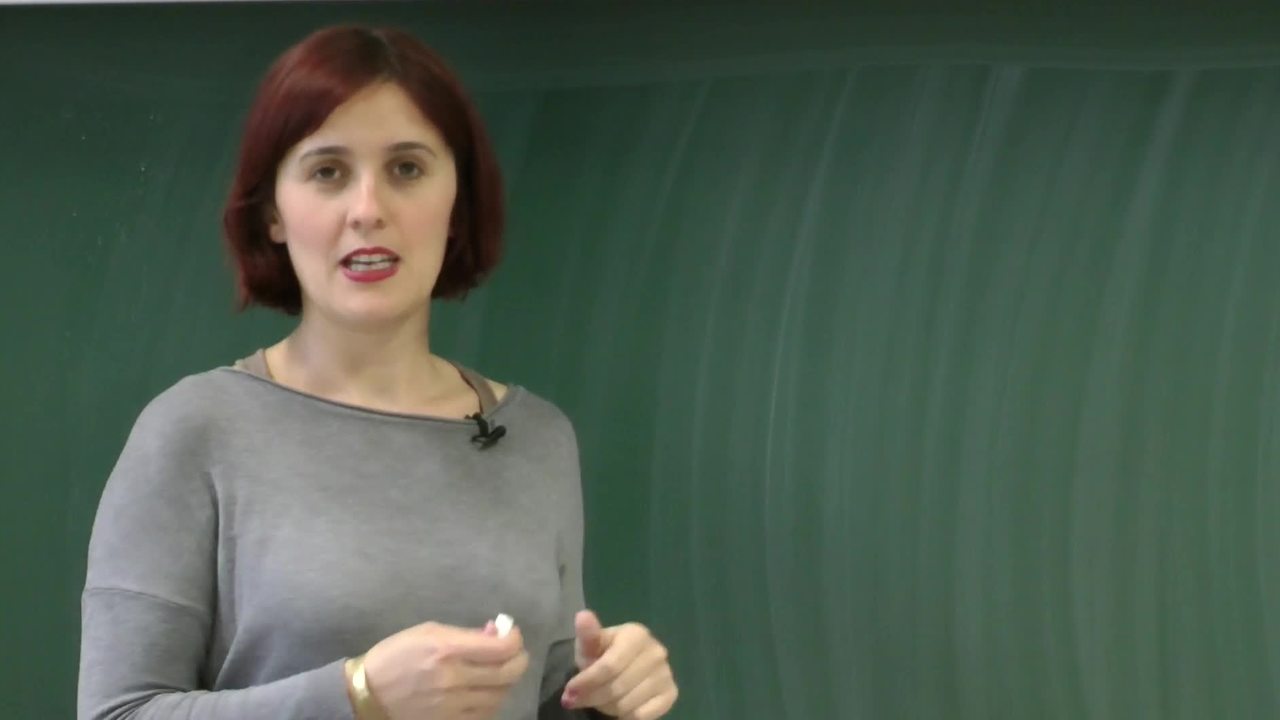
Daniela teaches Italian in a classroom, complete with blackboard, chalk, eraser, and students. Her lessons are very popular and people love her spontaneity and teaching style. She addresses grammatical topics one by one, geared to both beginning and intermediate level students.
Difficulty:
 Beginner
Beginner
Italy
Daniela highlights two verbs that do not call for the present subjunctive—the verbs vedere [to see] and sentire [to sense, to hear, to feel].
Difficulty:
 Beginner
Beginner
Italy
Daniela provides a nice long list of the so-called perception verbs and expressions that always precede the present subjunctive.
Difficulty:
 Beginner
Beginner
Italy
Daniela provides a list of verbs that always come before the subjunctive mood verbs. We'll see, however, that English doesn't follow the same rules.
Difficulty:
 Beginner
Beginner
Italy
Daniela covers the present subjunctive of these three verbs: rimanere [to remain, to stay], venire [to come], and dire [to say].
Difficulty:
 Beginner
Beginner
Italy
Daniela covers the present subjunctive for the following verbs: avere [to have], andare [to go], fare [to do], and bere [to drink],
Difficulty:
 Beginner
Beginner
Italy
Daniela homes in on the present subjunctive of the auxiliary verb essere [to be].
Difficulty:
 Beginner
Beginner
Italy
Daniela continues her lesson on the present subjunctive, using the verbs parlare [to speak], vedere [to see], and partire [to leave].
Difficulty:
 Beginner
Beginner
Italy
Daniela focuses on the present subjunctive and provides tips on how to recognize the subjunctive tense.
Difficulty:
 Beginner
Beginner
Italy
Daniela covers three modal or auxiliary verbs that are followed by nouns and not by the usual infinitive verbs. The verbs are: voglio [want], potere [can], and dovere [must].
Difficulty:
 Beginner
Beginner
Italy
Daniela recaps the modal verbs: potere [can], volere [want], and dovere [must], which are placed immediately before infinitive verbs. Modal verbs are also known as auxiliary verbs or helping verbs.
Difficulty:
 Beginner
Beginner
Italy
Daniela continues with the conditional, showing how it's used to express a desire, provide advice, or express possibility.
Difficulty:
 Beginner
Beginner
Italy
In today's lesson on the conditional tense, Daniela covers the verbs: tenere [to keep], venire [to come], and sentire [to feel], among others. Modal verbs, as in volere [to want, would like] in the conditional are also discussed.
Difficulty:
 Beginner
Beginner
Italy
Daniela continues with conditional verbs. This time she focuses on the key verbs: essere [to be], avere [to have], stare [to stay], rimanere [to remain], and dare [to give].
Difficulty:
 Beginner
Beginner
Italy
Daniela's fourth segment on the present conditional tense covers the important, and irregular, verbs: dovere, potere, sapere, vedere, & avere.
Difficulty:
 Beginner
Beginner
Italy
Daniela discusses the irregular conjugation of the conditional tense for these verbs: dovere, potere, sapere, vedere, and avere.
Are you sure you want to delete this comment? You will not be able to recover it.